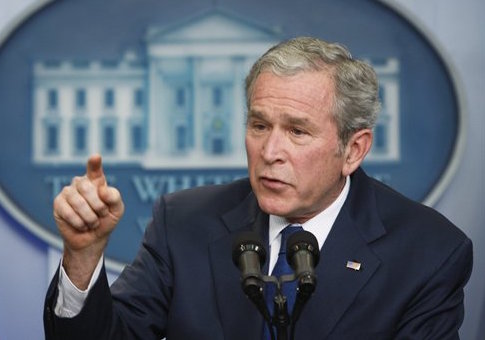A previously classified letter released Monday laid out former president George W. Bush’s legal authority to conduct expanded electronic surveillance following the September 11, 2001, terrorist attacks on the United States with the goal of ensuring national security.
The 2002 letter, released by the Office of the Director of National Intelligence and the Department of Justice, was written by former deputy assistant attorney general John Yoo to former Foreign Intelligence Surveillance Court (FISC) presiding judge Colleen Kollar-Kotelly. Yoo sought to address questions raised by Kollar-Kotelly regarding the electronic surveillance activities and particularly to present a legal basis for the scope of Bush’s authority.
"This letter discusses the president’s power to to deploy expanded electronic surveillance techniques in response to the terrorist attacks against the United States on September, 11, 2001. This letter outlines the legal justifications for such surveillance, which could be conducted without a warrant for national security purposes," Yoo wrote.
"Under the current circumstances, in which international terrorist groups continue to pose an immediate threat, we have concluded that such surveillance would be reasonable under the Fourth Amendment because it advances the compelling government interest of protecting the nation from direct attack."
The letter, previously classified as "top secret," spans 22 pages and is partially redacted.
"In applying the balancing test called for by the Fourth Amendment’s reasonableness analysis, we face a situation here where the government’s interest on one side--that of protecting the nation from direct attack--is the highest known to the Constitution," Yoo explained.
"On the other side of the scale, the intrusion into individual privacy interests is greatly reduced due to the international nature of the communications. Thus, we believe there to be substantial justification for a warrantless electronic surveillance program ... that would be reasonable under the Fourth Amendment."
Following the September 11 attacks, Bush authorized the National Security Agency (NSA) via executive order to begin certain collection activities, known then as the President’s Surveillance Program. The program included the collection of international communications passing through the United States involving individuals believed to be connected to al Qaeda or affiliated international terrorist organizations, which was called the Terrorist Surveillance Program.
The collection activities under the Terrorist Surveillance Program were transitioned in 2007 to Foreign Intelligence Surveillance Act authority under orders from the Foreign Intelligence Surveillance Court.
The NSA surveillance program continued under President Obama but received considerable scrutiny from privacy advocates after former CIA contractor Edward Snowden stole and leaked classified NSA documents to the press revealing the agency’s internet and phone surveillance activities in 2013.
The controversy led Obama to sign legislation ending the NSA’s bulk collection of Americans’ phone calls last year.
Following the devastating terror attacks in Paris last November, CIA Director John Brennan said that the privacy protections established as a result of Snowden’s leaks made it more "challenging" for the U.S. intelligence community to find terrorists.
"In the past several years, because of a number of unauthorized disclosures and a lot of handwringing over the government’s role in the effort to try to uncover these terrorists, there have been some policy and legal and other actions that are taken that make our ability collectively, internationally to find these terrorists much more challenging," Brennan said at a forum days after the attacks in Paris.
"I do hope that this is going to be a wake-up call particularly in areas of Europe where I think there has been a misrepresentation of what the intelligence security services are doing by some quarters that are designed to undercut those capabilities."
